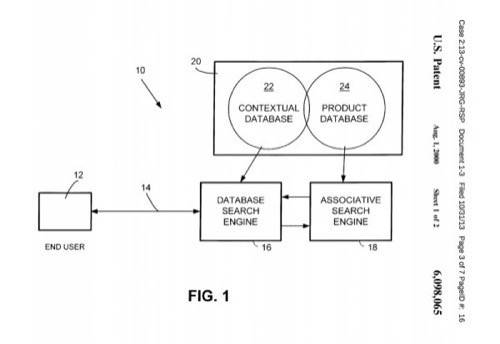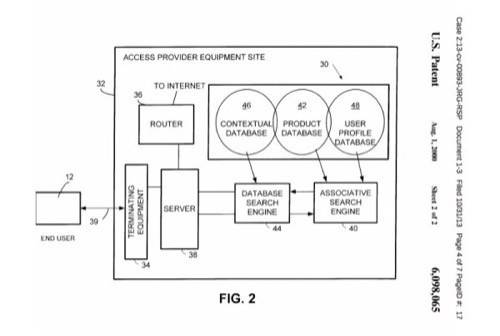Google’s Android operating system may be the rock star of mobile world, but it has another group of rock stars that are trying to knock it from its perch.
Google, Samsung, HTC and basically every major Android hardware manufacturer have been hit with a patent lawsuit from the Rockstar Consortium, a group jointly owned by the likes of Apple, Microsoft, BlackBerry, Ericsson and Sony based on patents acquired from the Nortel bankruptcy auction in 2011. The suits were filed last week in the U.S. District Court, Eastern Texas Division.
Google tried to purchase the Nortel patents during the auction in 2011. How serious its interest was at the time has been brought into question, as some view that Google was just trying to drive up the price of the patents for its competitors. The portfolio of about 4,000 patents sold to the Rockstar group for about $4.5 billion. Google later bought Android manufacturer Motorola for $12.5 billion in what is believed to be a bid to acquire its nearly 17,000 mobile related patents.
Google is accused of infringing seven patents. Rockstar insists that Google, despite its attempt to purchase the Nortel patents, is willfully violating the patents in question. The patents go after Google’s core business covering technology that matches Internet search terms with advertising. The Android manufacturers are accused of infringing seven patents that are generally broad strokes of common computer use such as “Managing a Virtual Private Network” and “System and Method for Notifying a User of an Incoming Communication Event” as well as concept for a navigation tool for graphical user interfaces (GUI).
Samsung, HTC, Asus, Pantech, Huawei, ZTE and LG are all being sued individually by the Rockstar Consortium.
Rockstar will likely be looking for patent licensing deals with all the companies involved or a large cash settlement. It is unclear from the filings if Rockstar would pursue injunctions against the Android manufacturers.
What Exactly Is Rockstar?
The Rockstar Consortium is a company that was created after Apple, Microsoft, BlackBerry, Ericsson and Sony purchased the Nortel patents at a bankruptcy auction in 2011. It operates as an individual unit from those companies and has worked over the past two years to reverse engineer many of the patents in its portfolio and determine what companies may be infringing.
According to Rockstar, that’s just about everybody that has ever made technology that works on or off the Internet.
“Pretty much anybody out there is infringing,” Rockstar CEO John Veschi said to Wired in an article in May 2012. “It would be hard for me to envision that there are high-tech companies out there that don’t use some of the patents in our portfolio.”
Rockstar describes itself as an “intellectual property licensing company.” Its primary directive is to sell and license patents to companies and bring lawsuits against those that it finds infringes on its intellectual property portfolio. It does not make any actual products.
Rockstar could be considered what in intellectual property jargon is known as a “non-practicing entity.” These non-practicing entities (NPEs) hold the rights to many patents but do not actually take products to market but rather make their money through licensing. NPEs have been called patent “trolls” by many, though the preferred legal definition is “patent assertion entity.”
Rockstar filed its lawsuit in the U.S. District Court of Eastern Texas, a division of the court that has long been known to give favorable results to patent assertion entities. Texas judges have often chosen not to dismiss cases on summary judgment and let cases be decided by a jury.
The Potential Hazards To Google & Android
The worst-case scenarios for Google and Android manufacturers are likely large fines, millions in legal costs, change of business models and devices being taken off the market. Long-term patent licensing deals could harm the profitability of Google and Android manufacturers for years.
This is not going to happen overnight. It can often take patent lawsuits in Eastern Texas more than a year (sometimes two or three) before they are brought to a decision.
While Rockstar is going after Android manufacturers based on specific patents and specific devices (for instance, Asus devices such as the PadFone, Transformer Pad and Nexus 7 are listed as infringing), the suit against Google is aimed straight at the search giant’s heart. Two of the patent diagrams from the suit show the kind of technology that’s in dispute.


Rockstar’s complaint is based on several Nortel patents filed from 2000 to 2008. The patents have to do with Google’s search and advertising business, which brings in the lion’s share of Google revenue and allows the company to have massive profit margins on a yearly basis. Google’s margins allow it to take on big projects (like Android, its Chrome operating system or swallow quarterly losses on its Motorola acquisition) as well as take “moonshots” through its research and development arm such as the project to create self-driving cars. A huge settlement or large licensing fees paid from Google to Rockstar would hinder its ability to be a progressive technology company.
In the end, the Rockstar lawsuits are something that Google and its Android manufacturing partners are going to have to take seriously. These cases are not going away any time soon and are not likely to dismissed by judges in Eastern Texas. Rockstar’s suits will be a major headline and theme for the technology industry over the next several years.

















